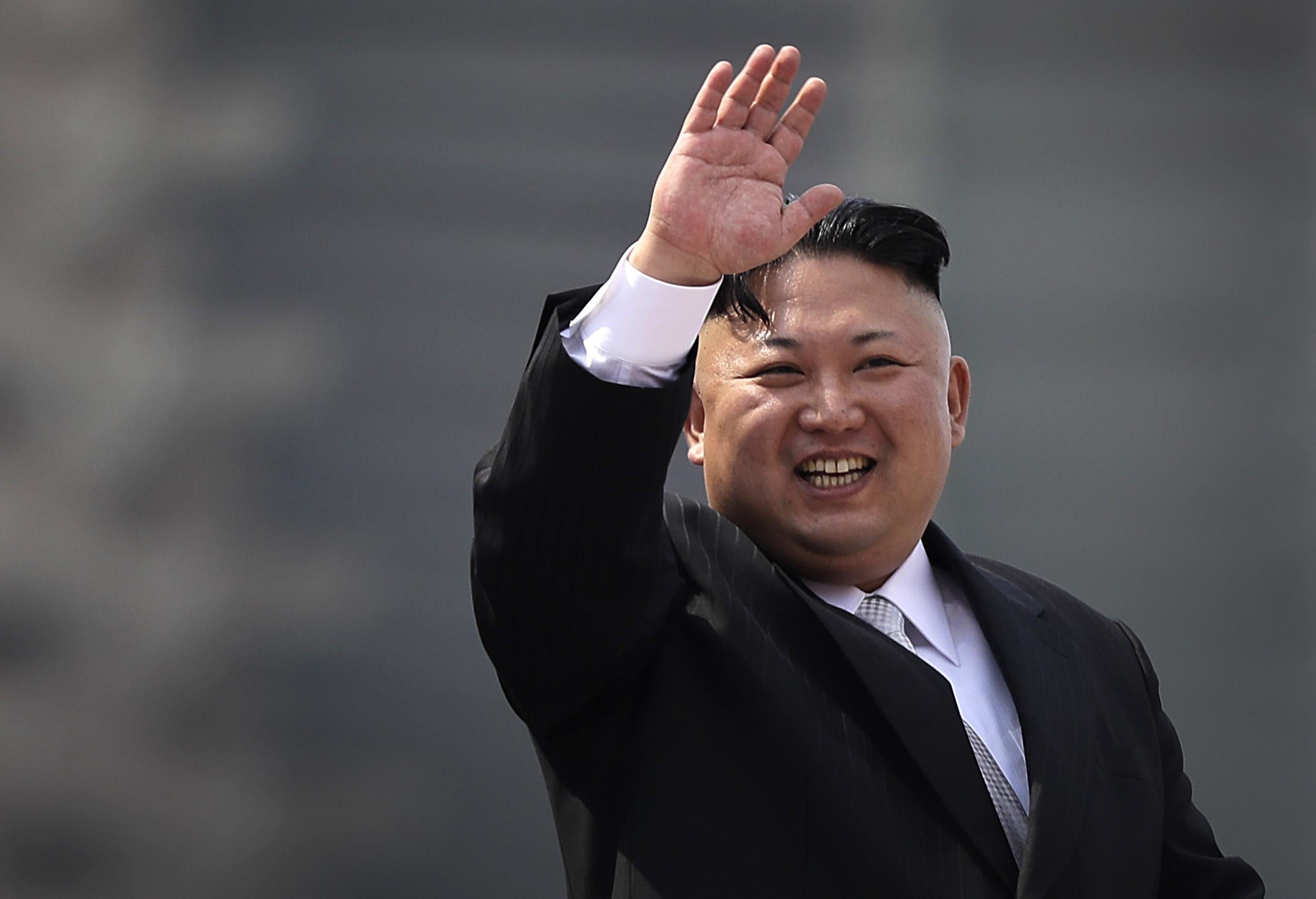Donald Trump attacks North Korea's 'belligerence'
Chinese President Xi Jinping asks Mr Trump to show 'restraint' on the issue

Your support helps us to tell the story
From reproductive rights to climate change to Big Tech, The Independent is on the ground when the story is developing. Whether it's investigating the financials of Elon Musk's pro-Trump PAC or producing our latest documentary, 'The A Word', which shines a light on the American women fighting for reproductive rights, we know how important it is to parse out the facts from the messaging.
At such a critical moment in US history, we need reporters on the ground. Your donation allows us to keep sending journalists to speak to both sides of the story.
The Independent is trusted by Americans across the entire political spectrum. And unlike many other quality news outlets, we choose not to lock Americans out of our reporting and analysis with paywalls. We believe quality journalism should be available to everyone, paid for by those who can afford it.
Your support makes all the difference.Donald Trump has criticised North Korea’s “belligerence” in a phone call with Chinese President Xi Jinping, amid escalating tensions between the US and the North.
Mr Trump told Mr Xi that North Korea’s actions are destabilising the Korean Peninsula, according to a White House readout of the call. The White House says both leaders “reaffirmed the urgency of the threat” in North Korea, and pledged to strengthen their coordination on this issue.
A Chinese state media report on the call, however, said Mr Xi urged restraint and asked Mr Trump to “refrain from taking any action that will aggravate tensions” on the Korean Peninsula.
Mr Trump has spoken out aggressively against North Korea in recent weeks, calling the country a “problem” that will be “taken care of.” He recently deployed a fleet of four warships to the Sea of Japan as a “show of force” in response to North Korean missile tests. He told United Nations Security Council ambassadors on Monday that the UN must be prepared to impose stronger sanctions on the country.
"This is a real threat to the world, whether we want to talk about it or not. North Korea is a big world problem and it's a problem that we have to finally solve," he said. “People put blindfolds on for decades and now it’s time to solve the problem.”
North Korea has responded in kind, marching new ballistic missiles through the streets of Pyongyang during a recent celebration of the birth of the country's founder and proclaiming that they will “respond without the slightest hesitation” to US aggression. The government recently detained a third US citizen who was visiting the country, according to the Swedish Embassy in Pyongyang.
North Korean officials have previously said that Mr Trump’s hostile rhetoric is escalating tensions between the countries.
“Trump is always making provocations with his aggressive words,” North Korea Vice Minister Han Song Ryol said earlier this month. “It’s not the [Democratic People’s Republic of Korea] but the US and Trump that makes trouble.”
China, meanwhile, has urged a measured approach to the conflict. Officials have asked the US to suspend military exercises with South Korea. Mr Xi is vocally opposed to the anti-missile system that the Trump administration has started installing there.
A Chinese Foreign Ministry spokesman urged all sides to “stay calm and restrained, and don’t take any actions that could escalate tensions”. White House spokesperson Sean Spicer said in a press conference on Monday that China had been "very, very helpful" in dealing with North Korea.
Mr Trump also spoke with Japanese Prime Minister Shinzo Abe on Sunday. The White House said only that they “addressed a range of regional and global issues of mutual concern."
Vice President Mike Pence returned early from a diplomatic trip to the Asia-Pacific on Monday, citing a busy week in Washington.
Join our commenting forum
Join thought-provoking conversations, follow other Independent readers and see their replies
Comments